Good Samaritan volunteer pursues psychiatry in honor of his father
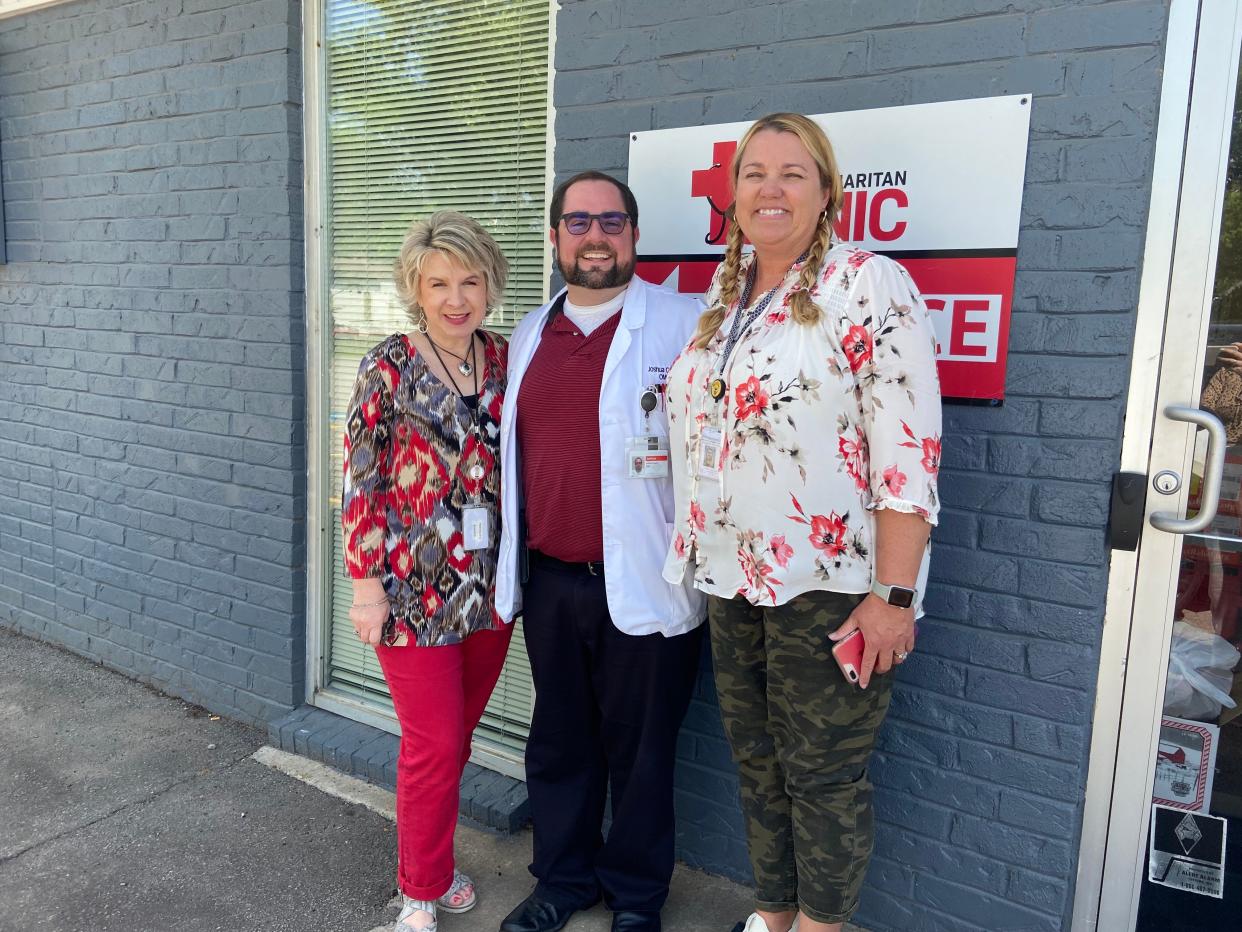
Joshua Gaunt, a senior at the Arkansas College of Osteopathic Medicine, is in the second class to graduate the college.
Originally from Sedalia, Missouri, Gaunt attended the University of Missouri for his undergraduate degree. Recently, he was accepted back at MU for his psychiatry residency.
Gaunt hopes to specialize further in psychiatry by doing a fellowship in geriatric studies. His passion in particular is Alzheimer's and other types of dementia.
At the Good Samaritan Clinic, Gaunt worked with a few of his professors from ARCOM and "fell in love with it." The clinic does everything from chiropractic care to pharmaceuticals to emergency care.
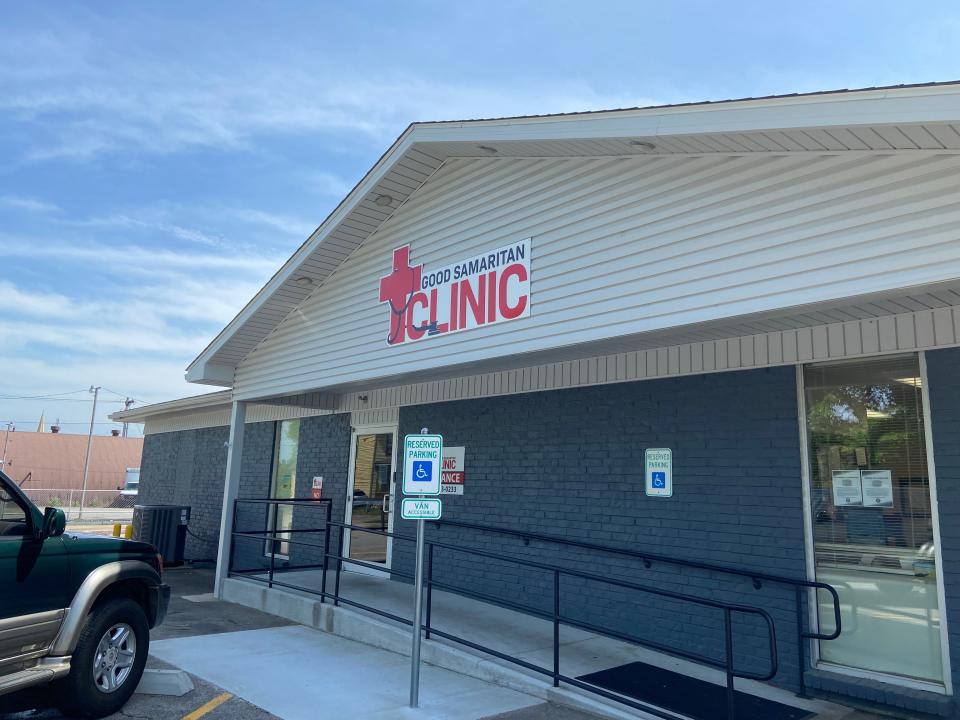
"You never know what people are going to come in here with," Gaunt said. "Even me kind of trying to specialize in psychiatry, I've treated quite a few different cases of depression and anxiety, even things like hallucinations here."
One experience at the clinic that stands out for Gaunt is when he had to treat an infected toenail. A high schooler came in with his father who had to translate for him in Spanish.
At first, Gaunt was hesitant, as he's "not a toe guy."
But his mentor, the medical director Dr. Ziegler, told him, "Josh, you're removing this infected toenail for this guy."
Gaunt said that 99% of him wanted to say no, but Ziegler said "We're going in there and we're going to do it."
That's exactly what the two of them did.
Apparently, the toenail had been bothering the boy for about eight months according to his father. He said he hadn't been playing sports, but with the toenail removed he was already feeling better.
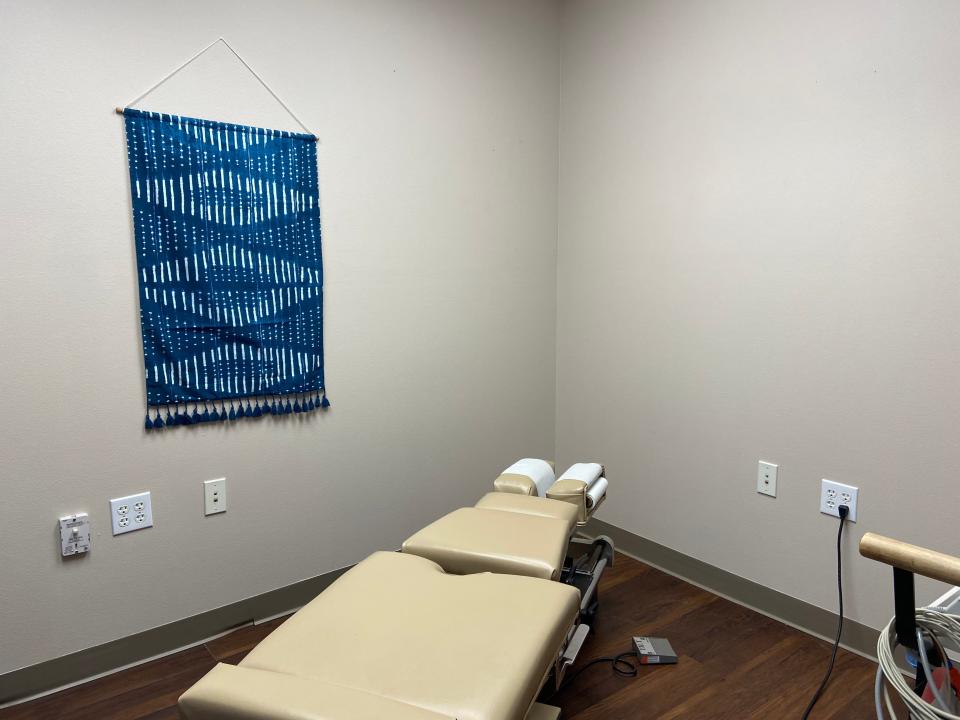
"(People) who go into psychiatry typically tend to be kind of empathetic almost to a fault," Gaunt said. "It was a painful experience for me, it was a painful experience for him, but he definitely got a benefit in the long run."
During one of Gaunt's rotations in his undergrad, his father was diagnosed with Alzheimer's at 60 years old. Gaunt had to stay home in Missouri to take care of him, as well as his aging grandmother.
At the same time, he was completing night classes for different masters programs, but he knew he wanted to go into medicine.
After about six months, Gaunt's brother moved back home to take over the role of caregiver for his father and grandmother.
Gaunt said it was a hard choice to leave his family. About a year after he did, they put his father in a full-time care facility.
Gaunt said that his rotation at a site in Searcy, where he worked in a geriatric unit of psychiatry, motivated him to pursue psychiatry with a focused fellowship in geriatric studies.
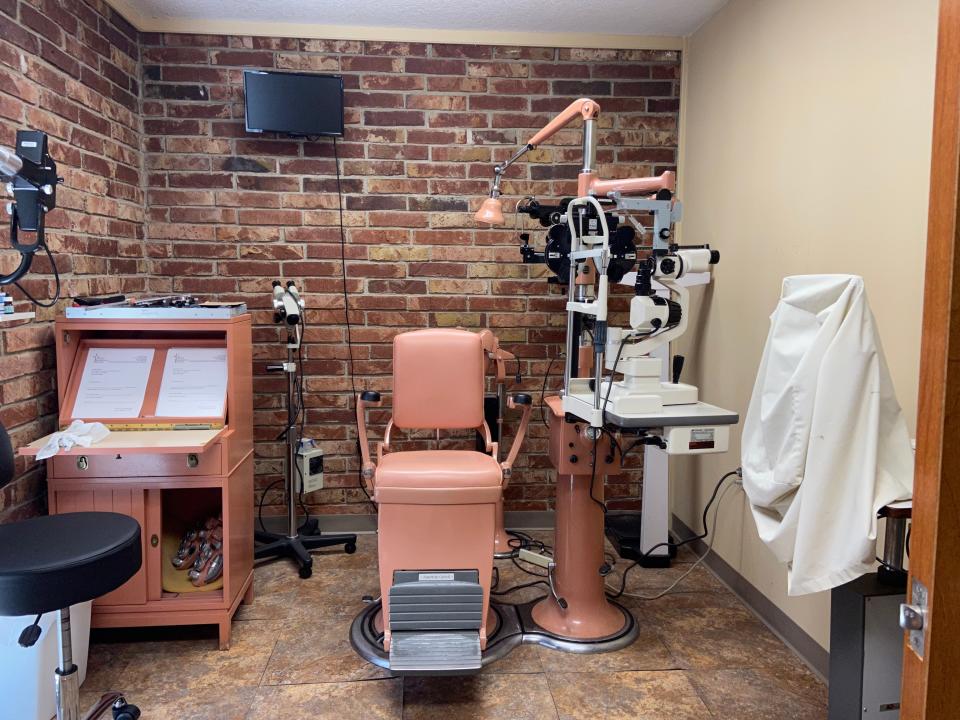
"The resident who was training me at the time said, 'You're really good with geriatric patients, you're very patient with them. You sit there and you try to understand what they're going through and try to see how they're doing each day and adjusting medications and things.' He said, 'That's not an easy thing to come by.' And that feedback really spoke to me and I was very comfortable there," Gaunt said.
He said that being in the residency program reminded him of when he took care of his father.
Gaunt said he read in a recent article that by age 85 about 30-50% of people will have some type of Alzheimer's-related dementia.
"For most people, the side effects, that's what happened to my dad is that the side effects he was having were so bad on his medications that they just weren't worth him staying on really with his quality of life," he said.
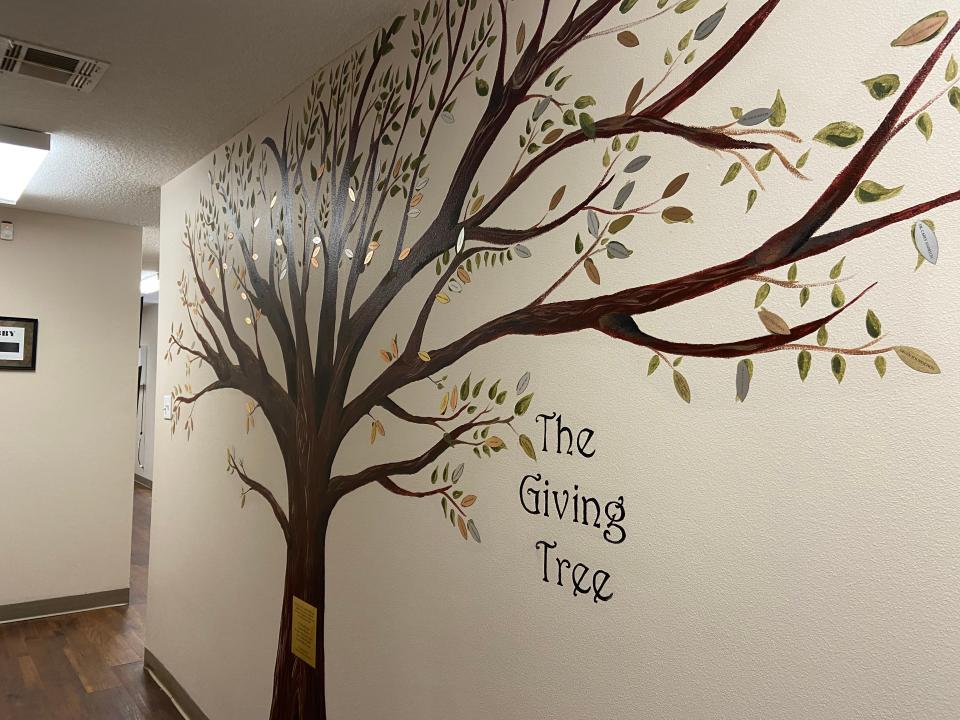
Before Gaunt moved to Fort Smith, he participated in an Alzheimer's Association Walk in Kansas City for a few years with his family.
He said that as soon as he moved here, he started a team at the River Valley Walk to End Alzheimer's. He's now participated for four years.
Through his pathology club at ARCOM, Gaunt wanted to start a team for the Alzheimer's Walk as the vice president to do community outreach for something that meant a lot to him.
Last year, his team raised over $500 for the association.
"That team and everything really meant a lot to me," Gaunt said. "I was never really good at getting outreach and voicing my concerns, but I feel like that's one thing that the walk has allowed me to do. To tell how it's affected my family and myself, which is really cathartic."
Christina Drake, walk manager for the Alzheimer's Association, said Gaunt "knocked it out of the park" with his team's fundraising.
She reached out to him to thank him for his participation and ask if he wanted to get more involved for next year.
"This (past) year, it really kind of moved me because they asked me to be on the planning committee for it," Gaunt said. "And that was just like, I was so excited. I was like, 'Yes!' And they said, 'Well just think about it.' And I'm like, 'Well, the answer is yes.'"
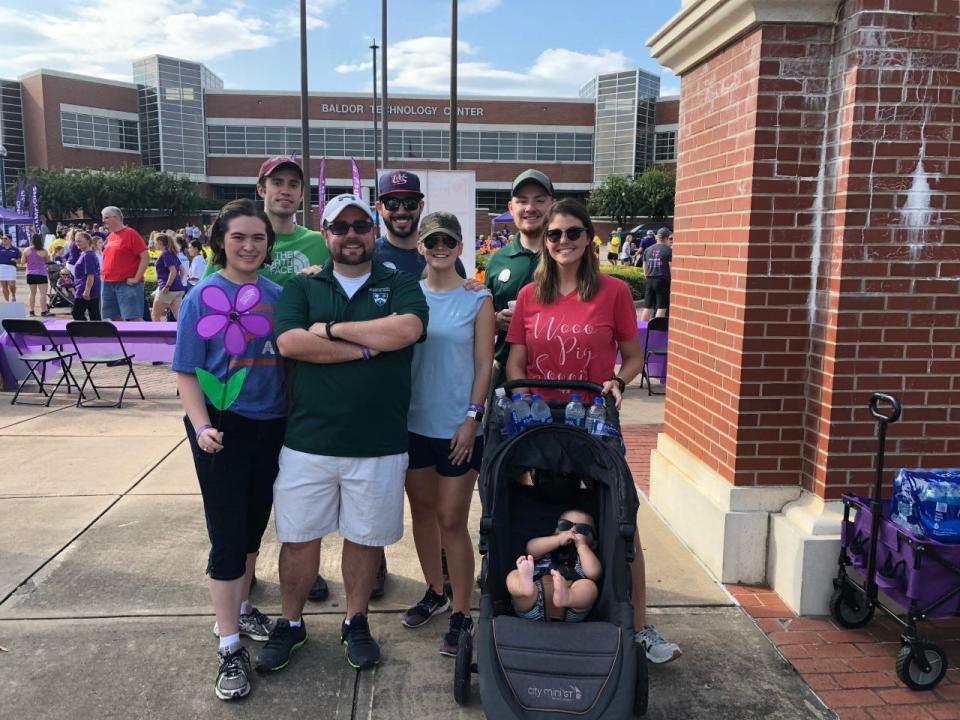
Drake spoke about how Gaunt was a huge help with the Walk to End Alzheimer's.
"I'm very happy to have him around," she said. "He's got a lot of positive energy and a great spirit."
Gaunt said he wants to stay involved with the organization even though he's moving this summer. He thinks the outreach they do is phenomenal.
"I definitely try to raise awareness, at least with my friends and on social media, about Alzheimer's and how it can affect (anyone)," he said. "You're like, well, this, happens to other people, this happens to other people's family members, it doesn't happen in mine, but then it does and you're like 'Oh my gosh.'"
Gaunt said it was hard to share about his father's health because he was a prominent community member as an ear, nose and throat surgeon.
"It was hard for me to come to grips with because once you start putting that out there, it's real," he said. "You're dealing with it and then I think as I slowly and surely started to post things that are like, 'this is my dad' and 'this is how he used to be.' Then over time, it led to the story that I was able to attach to our fundraiser. So we always walked for him every year."
Gaunt said that he was devastated to learn that Fort Smith doesn't have a psychiatry residency because he wanted to stay in town.
"I fell in love with how this community and the people in the school gave me a chance," he said. "Going into medicine and following my dream and my passion, I just, I can never say thank you enough."
Gaunt said he loves being from the Midwest and he loves the Kansas City area, but he's never met people who are so kind, welcoming and supportive of him as those in Fort Smith.
"I never met a single stranger at that university, and here at the clinic," he said. "They just welcome you with open arms and ask, 'What do you need? And we'll get you going.'"
Gaunt recalled a particular act of kindness he experienced after his first year at ARCOM. He had just finished his final exams and he and a friend went out to dinner at a Mexican restaurant. A man came up to him and his friend at the bar and started talking with them. He listened to them air out their grievances about how hard their tests were for about an hour.
The man ended up paying for their meals.
"That kind of stuff really speaks to you," Gaunt said. "I hope to be able to give back like that one day, just to do random acts of kindness because you see it all over this community."
This article originally appeared on Fort Smith Times Record: Good Samaritan employee pursues psychiatry

